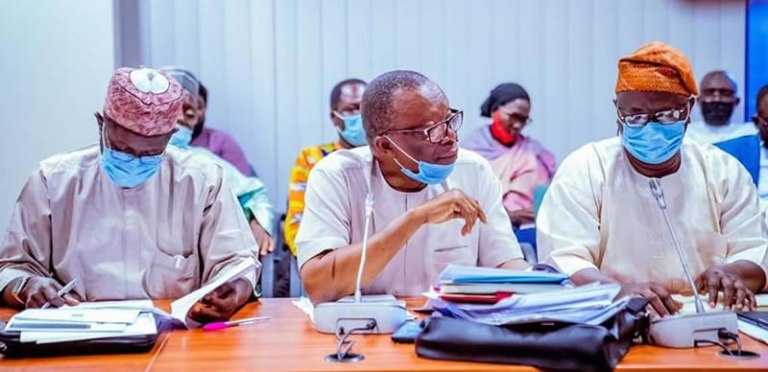The Academic Staff Union of Universities (ASUU) yesterday resolved to put on hold its decision on strike. The varsity teachers’ union took stand to give room for further consultations and after receiving reports from its branches.
According to the union, the decision was taken after a December 18 meeting to review the level of government’s implementation of the FGN-ASUU Memorandum of Action (MoA) of December 23, last year and other related matters.
In a statement issued after its National Executive Council (NEC) meeting on Sunday, ASUU welcomed the recommendation of the National Information Technology Development Agency (NITDA) that the payment platform – University Transparency and Accountability Solution (UTAS) developed by the university lecturers be deployed in government Ministries, Departments and Agencies (MDAs). ASUU National President Prof Emmanuel Osodeke said areas highlighted by NITDA in its report would be addressed.
Prof. Osodeke referred to the Integrated Payroll and Personnel information system (IPPIS), engineered by the International Monetary Fund (IMF) and World Bank as evil, stressing that the continuous use of the IPPIS had created distortions in the payment lecturers’ salaries.
He wondered why it took more than one year to get the needed feedback on the home-grown solution – UTAS – at a time Nigeria is yearning for “local content”.
He said: “NEC is pleased that the end-user evaluation report overwhelmingly endorses UTAS for immediate deployment by government for Nigerian universities. On our part, ASUU is fully prepared to address all the technical observations made by NITDA in order to make this happen.
“Our hope is that the National Universities Commission (NUC) and other agencies of government would promptly respond to issues that concern them in the NITDA’s report to pave way for speedy migration to UTAS and spare Nigerian universities of the evil effects of the IMF/World Bank-engineered IPPIS.”
The varsity teachers regretted that the Federal Government had turned its back on the plan to set up an inter-ministerial committee to review the draft Renegotiated 2009 FGN-ASUU agreement.
The ASUU boss described as worrisome the efforts made government agents to reduce ASUU’s demands to a regime of intermittent payment of watered-down revitalisation fund and release of distorted and grossly devalued Earned Academic Allowances (EAA).
The union specifically accused the Minister of State for Education, Chukwuemeka Nwajiuba, of failing to follow through with the promise made during a meeting with the House of Representatives Speaker on November 19.
Part of the ASSU statement reads: “NEC was worried by the spirited efforts of government agents to reduce the demands of ASUU to a regime of intermittent payment of watered-down revitalisation fund and release of distorted and grossly devalued Earned Academic Allowances.“
ASUU shall not relent in demanding improvement in the welfare and conditions of service of our members. However, we shall resist any attempt to blackmail the union and derail our patriotic struggle for a productive university system by official propaganda founded on tokenism and crumb-sharing.
“NEC concluded that government has failed to satisfactorily address all the issues raised in the 2009 FGN-ASUU Agreement and subsequent MoUs and MoAs.“
However, considering the ongoing intervention and consultation efforts, NEC resolved to review the situation at a later date with a view to deciding on the next line of action.
“The minister assured us that the process of reviewing the document would be set in motion within one week from that date. Nwajiuba’s failure to fulfill a promise made in the hallowed chambers of the National Assembly is not only provocative but reminiscent of trust-deficit that has bedevilled all agreements and understandings reached with this government and those before it since 2009.”
ASUU had announced plans to embark on a strike over the federal government’s failure to meet its demands.
Apart from the EAA, ASUU list its demands to include: the review of the NUC Act to curb the proliferation of universities by state governments who are not funding the existing ones; adoption of UTAS with concurrent discontinuance of the IPPIS and distortion in salary payment. Others are the release of accumulated promotion arrears; and the review and signing of the draft document on the Renegotiation of 2009 ASUU-FGN Agreement.











